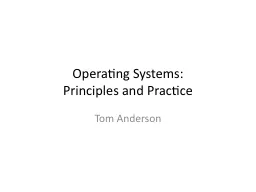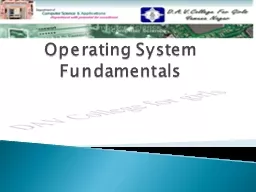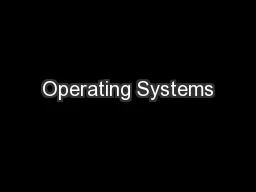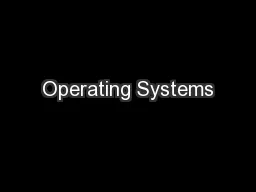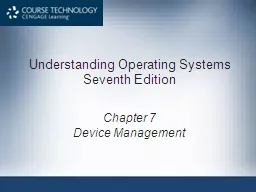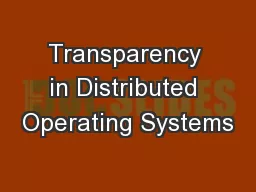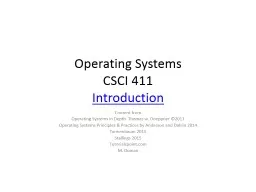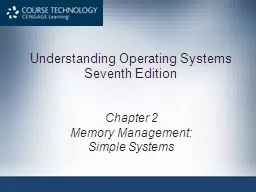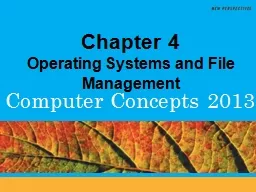PPT-Lecture2: Services of Network Operating Systems
Author : dennis955 | Published Date : 2024-12-06
Maysoon AlDuwais Edited by Sara Alhajjam After this lesson you will be able to Define preemptive and nonpreemptive multitasking Identify essential NOS components
Presentation Embed Code
Download Presentation
Download Presentation The PPT/PDF document "Lecture2: Services of Network Operating ..." is the property of its rightful owner. Permission is granted to download and print the materials on this website for personal, non-commercial use only, and to display it on your personal computer provided you do not modify the materials and that you retain all copyright notices contained in the materials. By downloading content from our website, you accept the terms of this agreement.
Lecture2: Services of Network Operating Systems: Transcript
Download Rules Of Document
"Lecture2: Services of Network Operating Systems"The content belongs to its owner. You may download and print it for personal use, without modification, and keep all copyright notices. By downloading, you agree to these terms.
Related Documents


